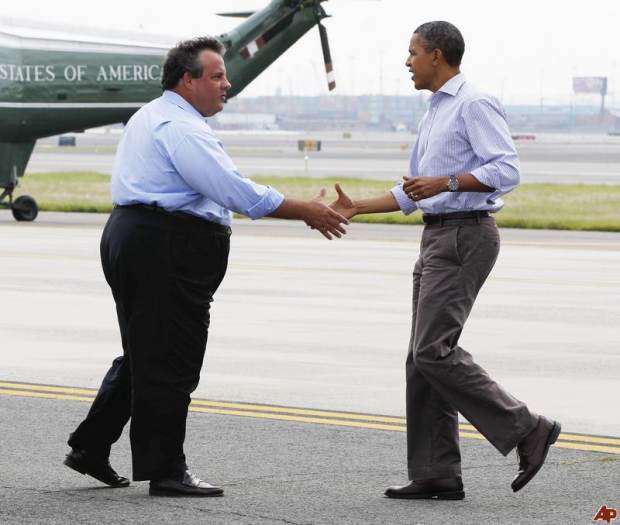For a group initially dismissed as fair-weather warriors, the September 17 “occupiers” of Wall Street are now set to spend a sixth soggy night in the Financial District’s Zuccotti Park. And while this particular action is riddled with flaws – the call to “End Corporate Personhood” is noble, but obtuse – it would be a mistake to dismiss the durability of their cause.
Like the Tea Party – of course! – the aspiring provocateurs in lower Manhattan have been met with a voluble doubt, albeit from different ends of the political spectrum, and a general expectation that the initial fervor will wither with the early autumn sun. Much the same was said of the party of Sarah Palin and Michelle Bachmann in its early days. But even now, beaten down by labels assigned to it by both Republicans – who want to stand at the vanguard, baying for “restoration” of this or that – and Democrats – who are quick to denounce its reactionary elements – it is the sustained strength of the Tea Party that points to a big future for the September 17 gang.
Borne of economic crisis (and succored by short-sighted corporate interests), the Tea Party represents a intriguing turn in modern class politics. Make no mistake, this is not the simple progeny of Nixon’s Southern Strategy. While both marinate in old cultural divides and in some cases race-hate, the Tea Party is driven by economics; a similar brand to which fills the square at Wall Street. Together, they bring to bear a striking development: The celebrated American bourgeoisie has turned on the institutions that once guaranteed its survival.
That the Tea Party’s mass rallies and now “candidates” are sponsored by right wing klepto-capitalists is important in the context of the coming elections (no small thing, given that a Republican sweep in 2012 would surely usher in an unprecedented era of American Austerity), but perhaps less so in considering the longer range implications. For that, we must look away from whom the Tea Partiers are traveling to see and instead consider what exactly they’re so eager to hear.
The events begin like most other GOP gatherings: with a rousing round of partisan talking points. But what follows isn’t always so facile – and the implications that follow paint a remarkable picture of the movement’s future.
Leading a rally in Iowa, Sept. 2, Palin introduced a new line of attacks, calling out “the permanent political class” and unleashing a cry of “Crony Capitalism”–a neat alliterative shorthand that has quickly become a staple of her routine.
“This,” she said, “is not the capitalism of free men and free markets, of innovation and hard work and ethics, of sacrifice and of risk. No, this is the capitalism of connections and government bailouts and handouts, of waste and influence peddling and corporate welfare. This is the crony capitalism that destroyed Europe’s economies. It’s the collusion of big government and big business and big finance to the detriment of all the rest, to the little guys.”
A damning indictment from the Tea Party’s beloved orator, and not something that would sound out of place in a tweet from the September 17 team or a speech from, say, Jimmy Hoffa Jr., president of the Teamsters – a man who days later would declare that “workers” faced a “war” to protect their interests.
“And you know, there is only one way to beat and win that war,” Hoffa said, full of bombast on Labor Day. “The one thing about working people is we like a good fight. And you know what? They’ve got a war, they got a war with us and there’s only going to be one winner. It’s going to be the workers of Michigan, and America. We’re going to win that war.”
Hoffa’s martial metaphor caused a bit of stir in the news cycle while Palin’s channeling of Eugene Debs passed by with hardly any comment. Not difficult to see why: Hoffa had played to headline type, but Palin, in substituting “little guys” for “workers,” had side-stepped the known language of class warfare while making, if anything, a more compellingly leftist case than the best known Labor leader in the country.
She had also laid bare the essential paradox of the Tea Party-as-rascally-Fascist narrative; namely, that the call for a break in the unholy relationship between government and business (in particular, the financial industry) is not a pro-capitalist argument at all. By definition, the strength of big business is tied to the guarantees made by the government. And it is only the government – which those running for the GOP nomination seek, at one time, to both lead and defame – that can extract itself from those bonds; an act that in practice would be, in simplest terms, “revolutionary.”
As Orwell put it, “To see what is in front of one’s nose needs a constant struggle,” and given the inherent lack of introspection in most political discourse, there’s no reason to believe that these foundational contradictions are likely to expose themselves in the current cycle. The Tea Party proper is a group more interested in reinforcing old cultural wedge issues. And so, while it is likely to suffer a bit with the passing of Election Day 2012 (and thus, its electoral utility), the organization also promises to carry on as a well-funded galvanizing tool for the Republican right.
But at some point, perhaps after a couple more terms of a Tea Party-led Congress or another few years of job stagnation, the lawn chairs in Iowa and the tarp-tents in lower Manhattan might find themselves sharing space on the same patch of unruly grass. Set free of the swaddles of cultural disdain, focused on a system that tramples on middle managers and baristas alike, and trained to organize by the same powers they’ll be joining forces to oppose, that song they sing about “the people united” may at last register a more menacing tone.




